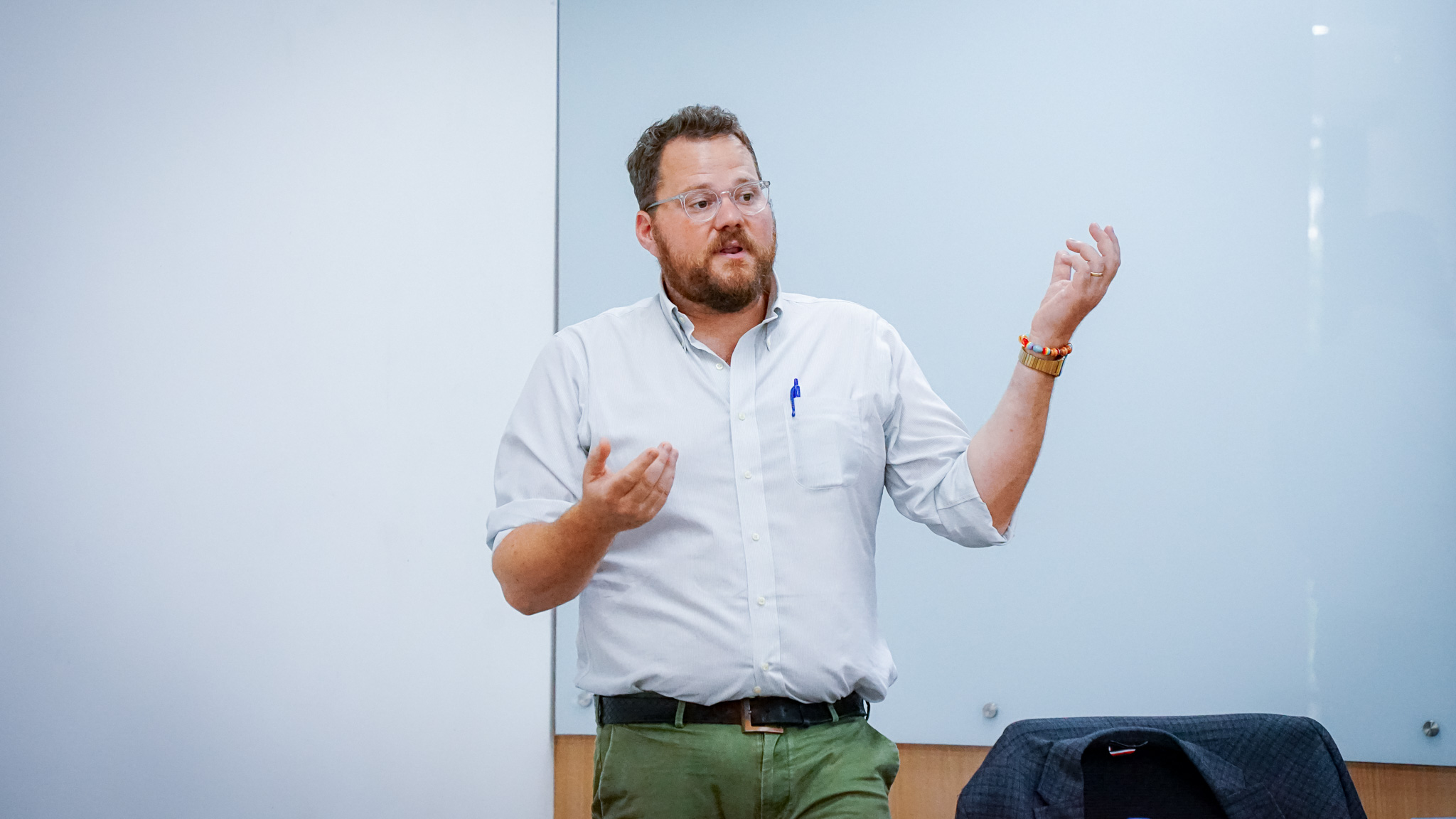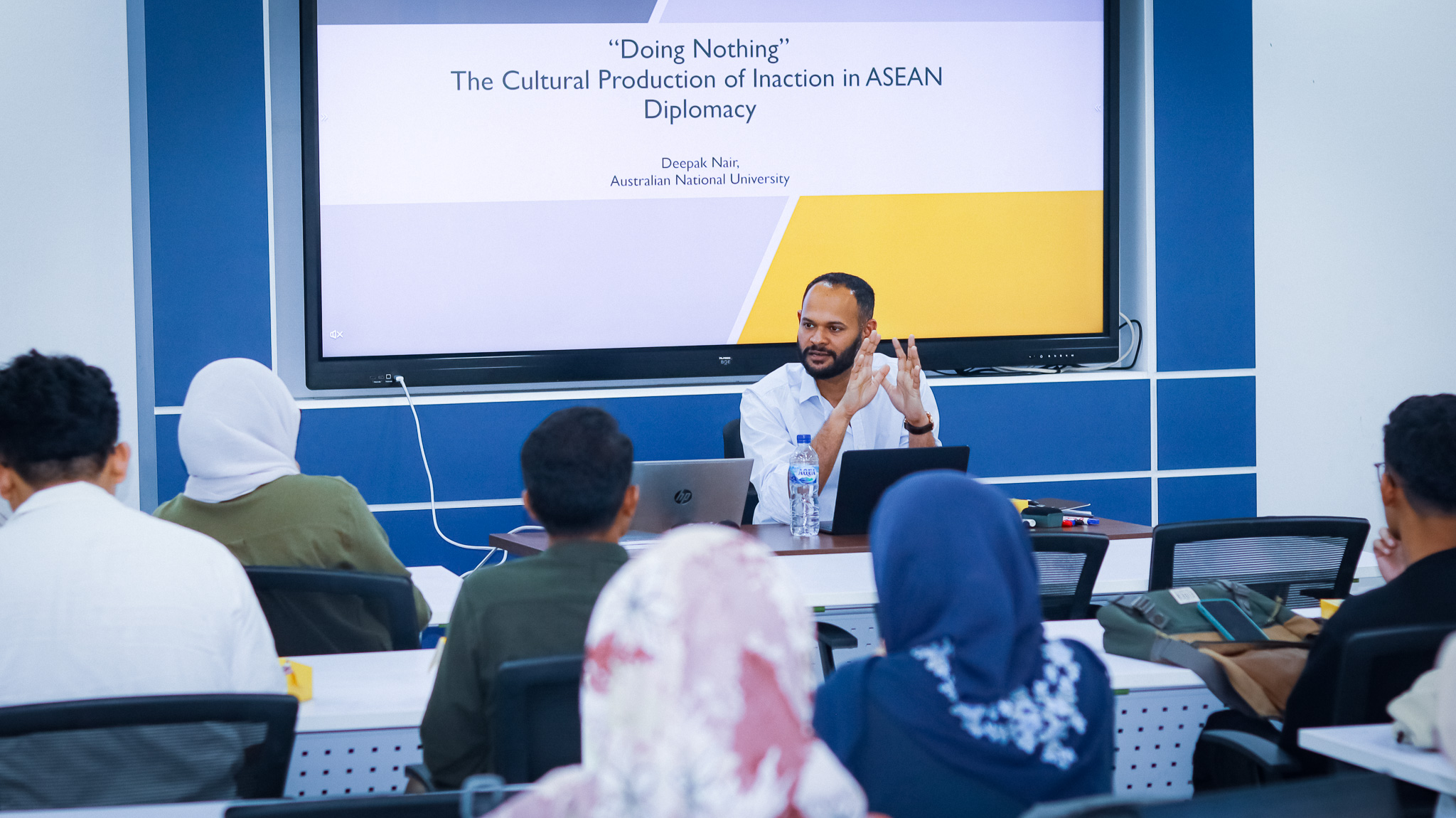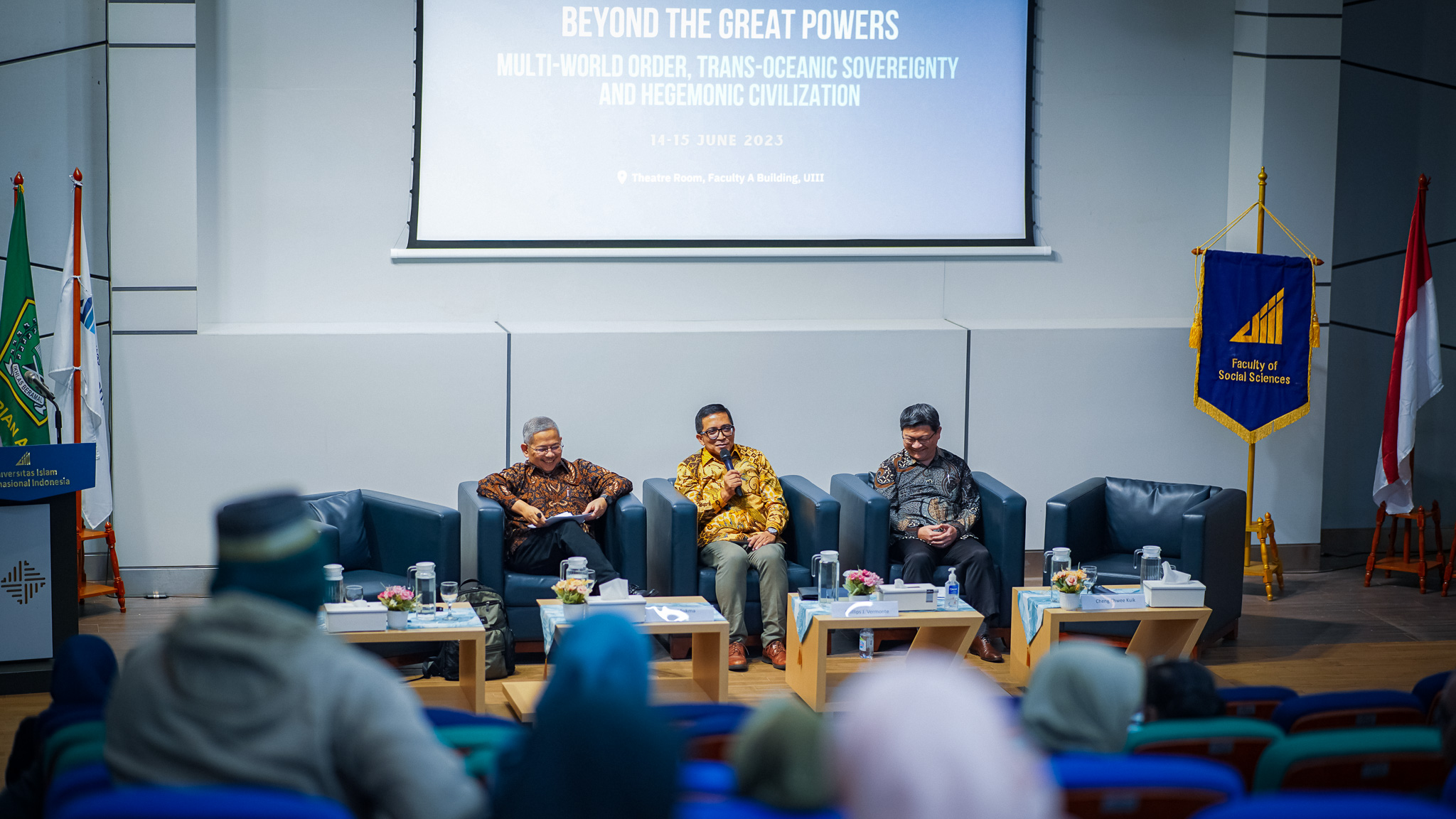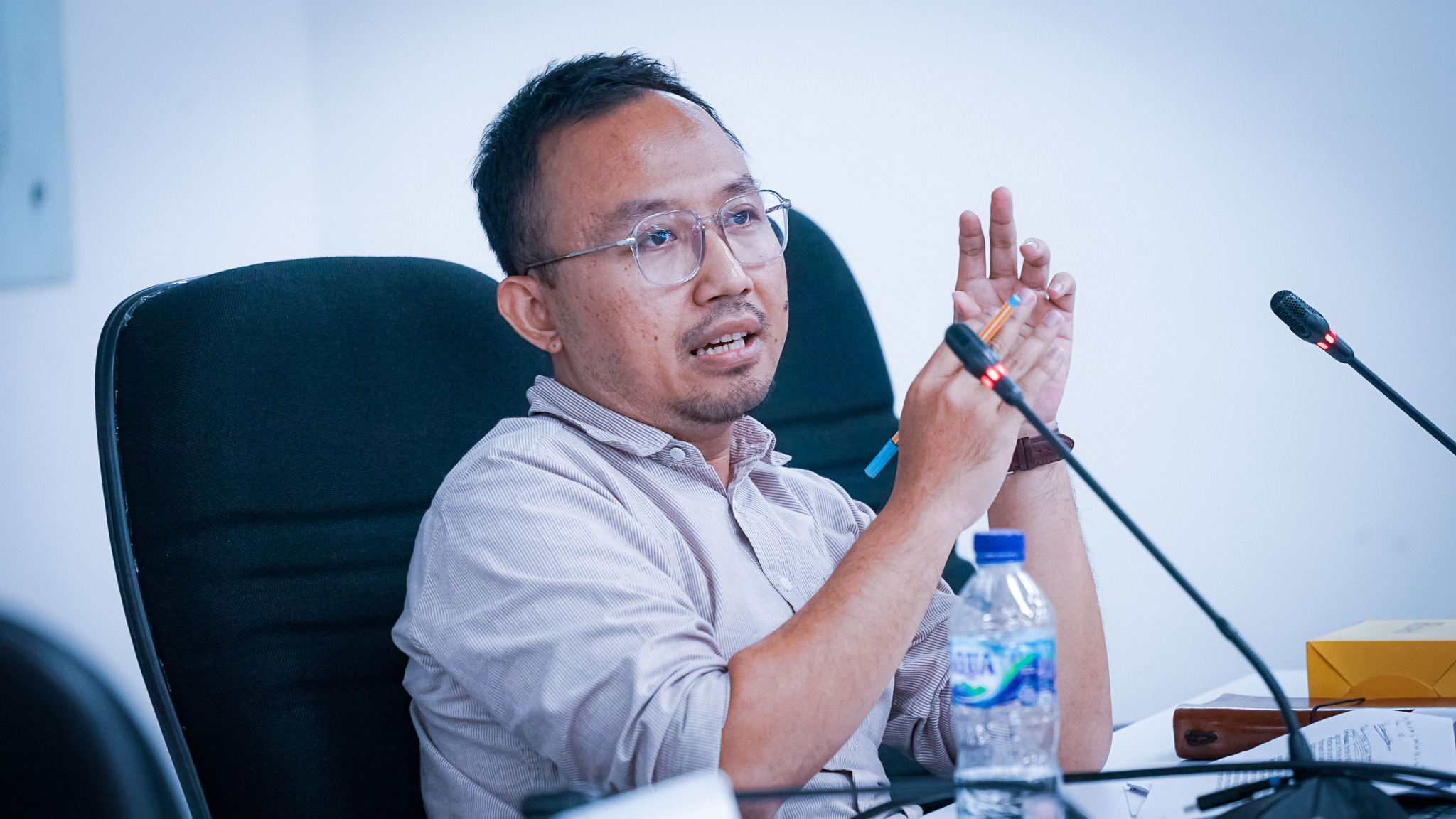Dr. Aarie Glas’ Brownbag Insights on ASEAN Peace Making Beyond Normative Order
June 25, 2024Contributor: Wafa Hussain* | Editor: Supriyono

On June 19, 2024, the Faculty of Social Sciences (FoSS) at Universitas Islam Internasional Indonesia (UIII) hosted the 53rd session of the Brownbag Talk Series, featuring Dr. Aarie Glas, an Associate Professor at Northern Illinois University, USA, discussing a topic "ASEAN and the Myanmar Problem: What More Can Be Done?”
Dr. Aarie Glas is an international relations expert and executive committee member of the American Political Science Association’s Interpretive Methodologies and Methods Group. He has conducted intensive research on regional governance and conflict management in the Global South, focusing on ASEAN.During the lecture, he delved into ASEAN's stance on the Myanmar problems of military Junta leadership and the Rohingya Refugees, aimed at finding potential large-scale attempts to address Myanmar's challenges. The inquiries were focused on two specific topics: the efficacy of previous ASEAN projects and the possibility of exporting new ideas.
| Read also: Brownbag Insights: Exploring the Cultural Production of Inaction in ASEAN |
His argument stemmed from the study on the 5-Point Agreement (5PC) on the Myanmar conflict, which had previously generated problems due to disobedience and the Junta's failure to ensure compliance.
What is worth noting more here is that Dr. Glas’ main thesis is ASEAN's fundamental order is not static or homogenous, but rather vulnerable to change and competition, advocating on characterizing the values and the possibility for change, as seen by shifting views about non-intervention and rising calls for more forceful action.
| Read also: Breaking Free from the Shackles of Authoritarian Nostalgia in Southeast Asia |
To address all the existing obstacles resulting from the peace-making performance of ASEAN, Dr. Glas provided several projections of possible better resolutions, which he categorized into three areas: ASEAN-led discussion with the National Unity Government (NUG), ECOWAS-style sanctions, and non-ASEAN options.
| Read also: Insights on Methodology: Pepinsky's Guide in Linking Qualitative and Quantitative Methods for Social Sciences |
Additionally, the sanctions recommended by the Economic Community of West African States (ECOWAS) appear possible as they include temporarily suspending or imposing additional restrictions on Myanmar to compel the junta into discussions. The sanctions might also involve diplomatic isolation or economic penalties to promote cooperation.
| Read also: Jusuf Kalla's Afghanistan Visit Highlights Gender Equality and Development |
Dr. Glas's lecture highlighted the complexities of ASEAN's crisis management and the need for normative reforms and innovative strategies. Emphasizing "Myanmar-led and Myanmar-owned" solutions, he underscored the importance of sustainable, long-term change. This session offered valuable insights for policymakers, scholars, and students, reinforcing UIII's commitment to addressing pressing global issues.
Brownbag Talk is a series of public lectures held by the Faculty of Social Sciences at UIII by inviting experts on politics and international relations to discuss contemporary issues in the fields. The talk with Dr. Aarie Glas engaged the audience with the need for adaptive governance in regional organizations, as well as ASEAN's ability to play a more decisive role in addressing the region's complex political concerns.
______
*) Wafa Hussain is a PhD Candidate in Political Science at the Faculty of Social Sciences at UIII
- Call for Papers 2025: FEB UIII Invites Researchers to Explore Muslim World Economy & Sustainability in OIC Countries
- Prof. Dr. Nasaruddin Umar: A Distinguished Profile in Religious Leadership
- Is Indonesia’s Middle Class Collapsing?
- Pedaling to Work, Dr. Lukman’s Message on ‘World Sustainable Transport Day’
- Welcoming the Pilgrim of Hope: Indonesian Muslim Leaders Embrace Pope Francis
- Sheikh Muhammad adh-Dhuwaini: A Recognized Authority in Sharia and Law
- Qurban and Grassroots Innovations Across Indonesia
- Indonesia's Green Qurban Movement
- UIII Productivity Ratio 2023
- Unsung Heroes in Global Trade: Celebrating International Customs Day 2024


